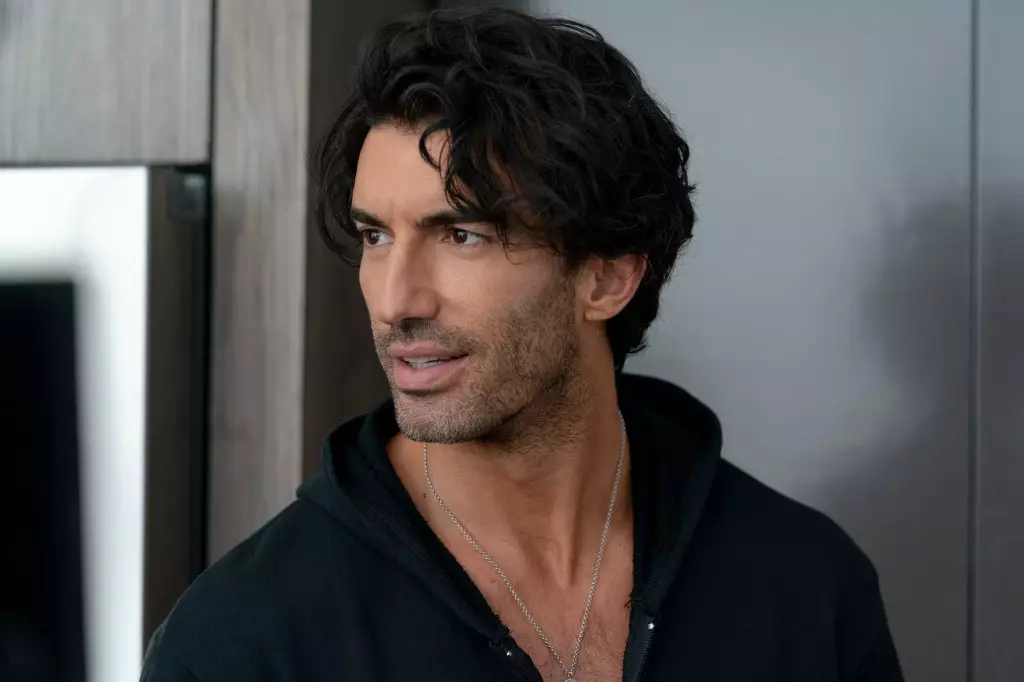In a powerful move that resonates with many, Justin Baldoni, the star and director of *It Ends With Us*, chose to connect with domestic violence survivors through an emotionally charged letter titled “Dear Survivor.” This letter, shared on social media on August 30, serves both as a personal outreach and a significant commitment towards advocacy, in collaboration with the nonprofit organization No More. Baldoni’s initiative is indicative of a growing awareness surrounding domestic violence issues in the mainstream narrative.
Addressing survivors directly, Baldoni emphasizes the qualities of resilience and courage, highlighting how these characteristics shine through even the darkest of times. His letter is not merely a set of comforting words; it is a powerful acknowledgment of the individual journeys that survivors undertake. He poignantly reminds them that every stride they take is not just a personal victory but an inspiration to others who are in search of their own paths towards healing. This focus on the collective storytelling of survivors enhances the sense of community among individuals who might feel isolated in their struggles.
Baldoni’s sentiment that survivors may not always recognize the impact of their resilience resonates deeply. The notion that even those who feel most alone can indirectly influence others is a vital part of healing and recovery. By incorporating phrases such as “you are not just surviving; you are thriving,” Baldoni elevates the narrative around domestic violence from one of mere survival to one of empowerment and triumph.
Such messages are particularly important in dismantling the stigma that often surrounds survivors. The emphasis on thriving rather than just existing challenges societal perceptions that can sometimes oversimplify or catastrophize survivor experiences. Instead, the focus should be on the wholly human experience of reconstruction and growth post-trauma.
The timing of Baldoni’s heartfelt message coincides with the release of the film adaptation of Colleen Hoover’s best-selling novel *It Ends With Us*, which confronts themes of domestic violence head-on. Starring Blake Lively as Lily Bloom—a character who faces her own tumultuous past—the film offers a platform to illuminate the complexities surrounding love, trauma, and personal strength. Through the lens of a romantic narrative, Baldoni’s film addresses the difficult realities that many face, effectively merging entertainment with advocacy.
Yet, the road has not been entirely smooth. As the film garners significant box-office success, buzz surrounding behind-the-scenes dynamics has surfaced. Allegations of discord among cast members and rumors of creative disagreements sometimes overshadow its impactful message. In navigating these challenges, Baldoni’s choice to engage a crisis communications expert illustrates a recognition that the narrative surrounding a project is as vital as the content itself. His support of Lively, particularly regarding potential sequels, reflects a spirit of collaboration even when faced with outside pressures.
Ultimately, Baldoni’s letter and the film’s premise underscore the profound role storytelling plays in advocacy. By weaving narratives that resonate with the lived experiences of many, there is an opportunity to foster empathy and understanding in audiences. The dialogue created by such artistic expressions encourages conversations around domestic violence, urges societal change, and, more importantly, validates the experiences of those who have endured trauma.
Moreover, platforms like *Survivor Love Letter*—which promotes the sharing of love letters to survivors—are essential to creating spaces where encouragement and solidarity can flourish. These communal endeavors highlight that while the journey may be personal, the strength derived from shared experiences can lead to collective healing.
In a world where the shadows of domestic violence loom large, Baldoni’s heartfelt message serves as a beacon of hope for many. By voicing support, recognizing individual narratives, and understanding the significance of resilience, we can inspire ongoing discussions about healing and empowerment. As the conversation around domestic violence continues to evolve, it’s imperative that we amplify survivor voices, acknowledge their triumphs, and foster a culture of understanding and support. Both Baldoni’s advocacy and the film’s narrative represent significant strides towards a future where survivors are seen not just as victims, but as spirited individuals capable of thriving in their new realities.


Leave a Reply